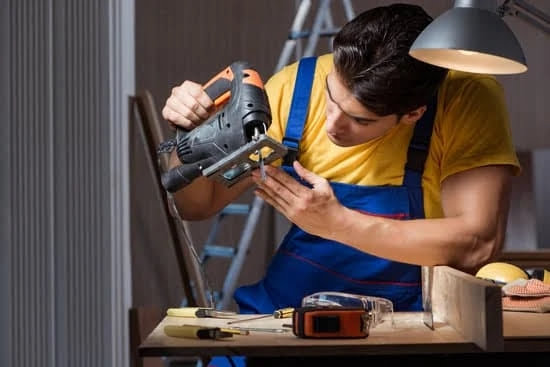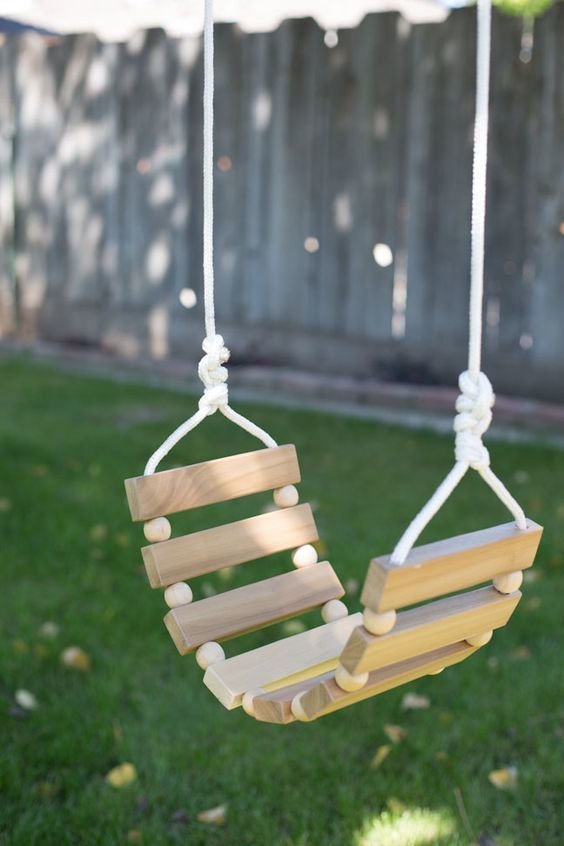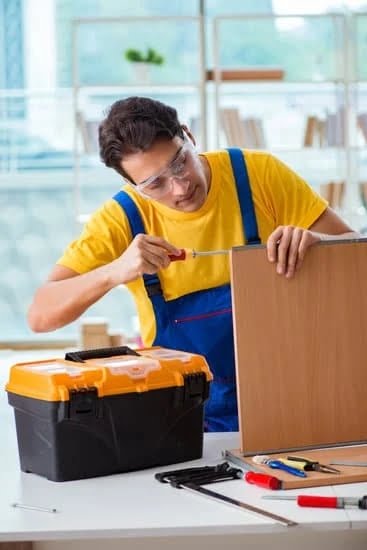Are you interested in venturing into the world of woodworking but not sure where to start? One of the first questions that may come to mind is, “What tools do I need to start woodworking?” Whether you’re looking to take on small DIY projects or dive deep into the craft, having the right tools is essential for success. This article will guide you through the essential tools and equipment needed to begin your woodworking journey.
Woodworking is a timeless and rewarding craft that allows individuals to create beautiful and functional pieces from raw materials. From building furniture to crafting intricate designs, woodworking offers endless possibilities for creativity and skill development. However, before diving into your first project, it’s important to familiarize yourself with the basic tools and equipment required to get started.
In this comprehensive guide, we will break down the essential hand tools, power tools, safety equipment, workbench essentials, measuring and marking tools, finishing and sanding tools, as well as additional supplies needed for woodworking. By understanding the purpose of each tool and its role in woodworking, you’ll be better equipped to set up your workshop and begin honing your craft.
So let’s explore the world of woodworking and discover what tools are necessary for embarking on this fulfilling journey.
Essential Hand Tools
When starting your woodworking journey, it’s important to equip yourself with the essential hand tools that will allow you to craft beautiful and functional pieces. Here are the must-have hand tools for any aspiring woodworker:
- Chisels: Chisels are essential for carving out intricate details and creating joints in woodworking projects.
- Hand Planes: Hand planes are used to flatten and smooth out rough surfaces of wood, ensuring a professional finish for your projects.
- Saws: A good set of saws, including a crosscut saw and a rip saw, will allow you to accurately cut through different types of wood.
- Claw Hammer: A claw hammer is a versatile tool that can be used for driving nails, as well as for light demolition work.
- Screwdrivers: Both flathead and Phillips screwdrivers are necessary for assembling and attaching wooden components together.
Investing in high-quality versions of these hand tools will ensure that you have the right equipment to start working on your woodworking projects. With the proper hand tools, you’ll be able to create precise cuts, smooth finishes, and sturdy joinery in your woodworking endeavors.
Remember that choosing the right type and size of each tool is crucial for achieving great results in woodworking. Whether you’re whittling a small piece or building furniture, having the necessary hand tools at your disposal will make all the difference in the quality of your work.
Power Tools
When it comes to woodworking, power tools can make a significant difference in the efficiency and quality of your projects. Whether you’re a beginner or an experienced woodworker, having the right electric tools can help you accomplish tasks more quickly and precisely. Here are some essential power tools that every woodworking enthusiast should consider adding to their workshop:
- Circular Saw: A versatile tool that can be used for straight cuts, bevel cuts, and even some rough crosscuts.
- Power Drill: An essential tool for drilling holes and driving screws, a power drill is a must-have for any woodworking project.
- Jigsaw: Perfect for cutting curves and intricate shapes, a jigsaw is invaluable for creating detailed designs in wood.
In addition to these basic power tools, more advanced woodworkers may want to consider investing in a table saw, router, or compound miter saw. These tools can expand your capabilities and allow you to tackle more complex projects. However, it’s important to remember that safety should always be a top priority when using power tools. Make sure to read the manufacturer’s instructions carefully and use safety equipment such as goggles and ear protection when operating these tools.
Ultimately, the specific power tools you’ll need will depend on the type of woodworking projects you want to undertake. Whether you’re building furniture or carving decorative items, having the right electric tools can help bring your visions to life with precision and ease.
Safety Equipment
Woodworking can be a fulfilling and creative hobby, but it’s important to prioritize safety while working with wood. In this section, we’ll discuss the essential safety equipment that every woodworker should have in their workshop.
Protective Gear
One of the most important aspects of woodworking safety is wearing the right protective gear. This includes items such as safety goggles or glasses to protect your eyes from flying wood chips, a dust mask to prevent inhalation of sawdust particles, and hearing protection to guard against the noise produced by power tools.
First Aid Kit
Accidents can happen in any workshop, so it’s crucial to have a well-stocked first aid kit on hand. Make sure your kit includes bandages, antiseptic ointment, sterile gauze pads, adhesive tape, and any other necessary supplies for treating minor cuts and injuries.
Fire Safety Tools
When working with wood and power tools, there’s always a risk of fire. It’s important to have fire extinguishers readily available in your workshop and to know how to use them properly. Additionally, consider installing a smoke detector and keeping a fire blanket on hand for added protection.
By having the right safety equipment in your woodworking shop, you can minimize risks and create a safe environment for pursuing your passion for woodworking.
Workbench and Clamps
When it comes to starting out in woodworking, one of the most important elements you’ll need is a sturdy workbench and clamps. A workbench provides a stable surface for you to work on, allowing you to saw, chisel, and sand with ease. Additionally, clamps are essential for securing your wood pieces in place as you work on them. Without these tools, it would be nearly impossible to create fine woodworking projects with precision.
When choosing a workbench, look for one that is made of durable materials such as hardwood or steel. Ensure that it is heavy enough to remain stable as you work on it. Many woodworkers also prefer a workbench with built-in storage for tools and supplies, keeping everything within arm’s reach.
As for clamps, having a variety of sizes and types will be beneficial for different projects. From bar clamps to C-clamps, each type serves its own purpose in securing your wood pieces.
Investing in a quality workbench and clamps may seem like a significant initial expense, but it’s crucial for creating professional-level woodworking projects. These tools will provide the foundation on which you can build your skills and pursue more advanced projects in the future. So when considering what tools to start woodworking, don’t overlook the importance of a reliable workspace and clamping system.
Measuring and Marking Tools
When starting woodworking, having the right measuring and marking tools is essential to ensure precision in your projects. Whether you are a beginner or an experienced woodworker, accuracy is key to creating high-quality pieces. Here are some of the essential measuring and marking tools you’ll need to have in your woodworking arsenal.
A high-quality combination square is one of the most versatile tools for woodworking. It can be used for layout, measuring, and checking for squareness, making it a must-have in any woodworker’s toolkit. Additionally, a marking gauge is essential for scoring lines parallel to an edge and ensuring accurate cuts. Another important tool is a good quality tape measure, which will be used frequently throughout your woodworking projects.
If you want to take your precision to the next level, adding a dial caliper to your collection will allow you to make extremely accurate measurements and inside or outside dimensions. In addition to these hand-held tools, having a reliable carpenter’s level will help ensure that your projects are perfectly plumb and level.
Ensuring precision in woodworking requires having the right measuring and marking tools at your disposal. By investing in quality instruments such as combination squares, marking gauges, tape measures, dial calipers, and carpenter’s levels, you can guarantee that your woodworking projects will be executed with the utmost accuracy.
Finishing and Sanding Tools
When it comes to woodworking, achieving a professional finish for your projects is essential. This often involves the use of finishing and sanding tools to smooth out surfaces and achieve the desired look. Whether you are a beginner or experienced woodworker, having the right tools for finishing and sanding can make a significant difference in the quality of your projects.
Types of Finishing Tools
One essential tool for achieving a professional look in woodworking is a good quality paint brush or spray gun for applying stains, paints, and finishes to your projects. Additionally, having a variety of sandpaper grits and sanding blocks will allow you to smooth out any rough surfaces before finishing.
The Importance of Sanding Tools
Sanding is a crucial step in woodworking that helps create a smooth and even surface for finishing. Orbital sanders, belt sanders, and detail sanders are common power tools used for this purpose. Handheld sanding blocks and sandpaper are also necessary for reaching areas that power tools cannot access.
Tips for Achieving a Professional Finish
To achieve a professional look in your woodworking projects, it’s important to take your time with the finishing and sanding process. Begin with lower grit sandpaper to remove any imperfections or rough spots on the wood surface, then gradually work your way up to higher grits for a smooth finish. Use high-quality finishing tools and materials to ensure that your final result is top-notch.
By investing in high-quality finishing and sanding tools, you can elevate the overall appearance of your woodworking projects and create pieces that you can be proud of. Whether it’s smoothing out rough edges or applying a flawless finish, having the right tools for this stage of the woodworking process is crucial.
Additional Supplies
Woodworking requires more than just tools and equipment; it also involves various supplies to complete your projects. Some essential additional supplies that you will need for woodworking include wood glue, sandpaper, finishing products, and protective gear.
Firstly, having the right wood glue is crucial for any woodworking project. There are different types of wood glues available in the market, such as yellow glue, white glue, and epoxy. Each type has its specific uses and drying times, so it’s important to choose the right one based on your project needs.
In addition to wood glue, sandpaper is another essential supply for woodworking. It helps smooth out rough edges, remove imperfections, and prepare surfaces for finishing. Sandpaper comes in various grits ranging from coarse to fine, allowing you to achieve different levels of smoothness on your wood projects.
Lastly, finishing products such as varnish, lacquer, or paint are important for protecting your woodwork from damage while enhancing its appearance. Whether you want a natural wood look or a colorful finish, choosing the right products can make a significant difference in the final outcome of your projects.
| Additional Supplies | Description |
|---|---|
| Wood Glue | Essential for bonding pieces of wood together |
| Sandpaper | Used for smoothing out rough surfaces and preparing wood for finishing |
| Finishing Products | Protective coatings that enhance the appearance of wood projects |
Conclusion
In conclusion, starting your woodworking journey can be an exciting and fulfilling experience. By understanding the essential hand tools, power tools, safety equipment, workbench and clamps, measuring and marking tools, finishing and sanding tools, as well as additional supplies needed for woodworking, you are equipped with the knowledge of what tools to start woodworking.
It’s important to remember that woodworking is a skill that takes time to develop. As you begin your journey, be patient with yourself and take the time to learn how to properly use each tool. Safety should always be a top priority, so make sure to invest in quality safety equipment before starting any project.
The world of woodworking offers endless possibilities for creativity and practicality. Whether you’re interested in building furniture or creating small crafts, having the right tools will set you on the path to success. So go ahead, gather your tools and supplies, find a dedicated workspace, and start bringing your woodworking projects to life.
Frequently Asked Questions
What Tools Do I Need to Start Basic Woodworking?
To start basic woodworking, you will need essential hand tools such as a hammer, screwdrivers, chisels, hand saws, tape measure, and clamps. Power tools like a cordless drill, circular saw, and sander are also important for more advanced projects. Safety equipment like goggles, gloves, and a dust mask are crucial for protecting yourself during woodworking.
What Do I Need to Start a Wood Workshop?
Starting a wood workshop requires more than just tools. You will need a suitable space to work in, with good lighting and ventilation. A sturdy workbench is essential, as well as storage for your tools and materials.
A dust collection system or shop vacuum can help keep the space clean. Additionally, having a range of lumber and hardware on hand will be necessary for your projects.
Can I Teach Myself Woodworking?
Yes, it is possible to teach yourself woodworking with the wealth of resources available today. There are many instructional books, online tutorials, and woodworking classes that can provide you with the knowledge and skills to get started.
It’s important to start with simple projects and gradually work your way up to more complex ones as you build confidence and experience in woodworking. Remember to prioritize safety and take your time to learn each technique properly.

Hi everyone! I’m a woodworker and blogger, and this is my woodworking blog. In my blog, I share tips and tricks for woodworkers of all skill levels, as well as project ideas that you can try yourself.





